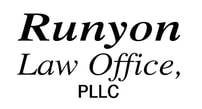More About Organization
Let's start with tax records. You should keep copies of your filed tax returns indefinitely. Those are the financial history of your life, and older ones are hard to recover, even from the IRS. The period for filing for an additional refund is 3 years, so you should keep your supporting information at least that long, too. If the IRS wants to come after you for more tax, they also have 3 years - unless you've seriously understated your income; then they have 6. If you haven't filed a return at all or have filed a fraudulent return, they have forever. So, if you're in either of those last categories, I hope you're reading this somewhere without an extradition treaty - and I suggest you keep all those receipts handy.
As for other records, you should keep your vital statistics records forever and in a safe place - those are the human history of your life. That means things like birth and marriage (and divorce) certificates, military service discharges, adoption and citizenship records, cemetery lot certificates, and passports should be kept in a safe deposit box or fireproof safe. They can be reproduced, but the process is often tedious, expensive and slow. That's the same for original stock certificates, life insurance policies, and promissory notes for loans you've made. Of course, you should also keep things there that can't be replaced - the gold piece your grandfather gave you, important letters from a parent or child, maybe even digital copies of your family photos.
People always ask about putting their original wills or deeds in a safe deposit box. I say no. I've mentioned before that original wills and other estate planning documents are better off in the safe deposit box of the lawyer who prepared them. The lawyer can get to them immediately when the time comes, can easily make you more copies, and can quickly turn them over to the family or another lawyer. Don't worry about loading up the box with copies of your will either - or even the deed to your home. It's good to have the will (and trust, if you have one) copies handy at home, so you can review them periodically, and copies aren't legally significant anyhow. Your deed was recorded in the county registry, and you can go look at it there online whenever you want. Just Google it at "NH Deeds".
Also, If you want others to have access to your safety deposit box once you're gone, make sure the bank's records are set up correctly to allow that. Otherwise, no one will be able to get in there until an executor is appointed, and it will be hard to appoint an executor without your will, if that's where it is. Sort of a Catch-22 that won't be nearly as funny for your family as the book
Posted on 03/20/2013
